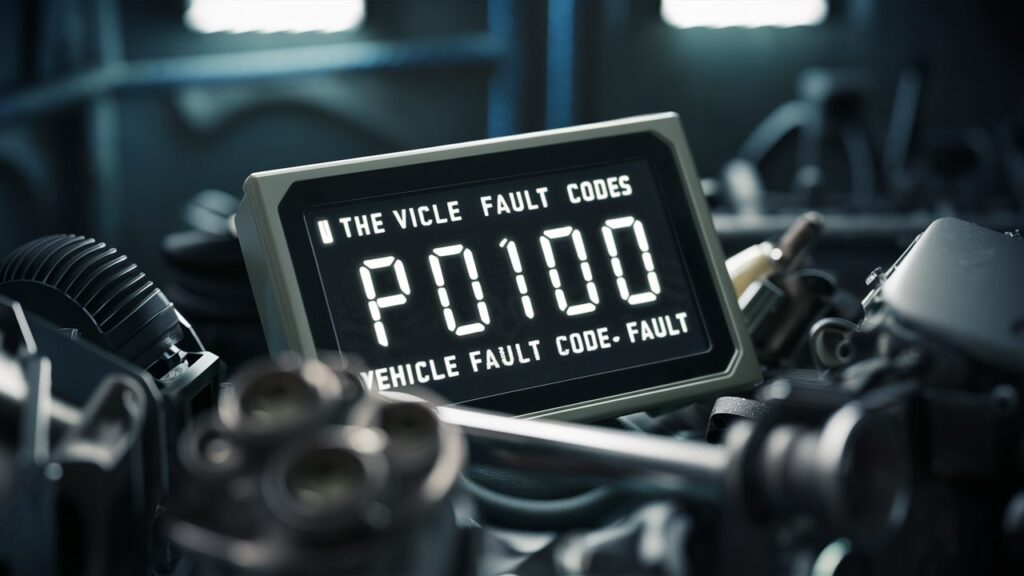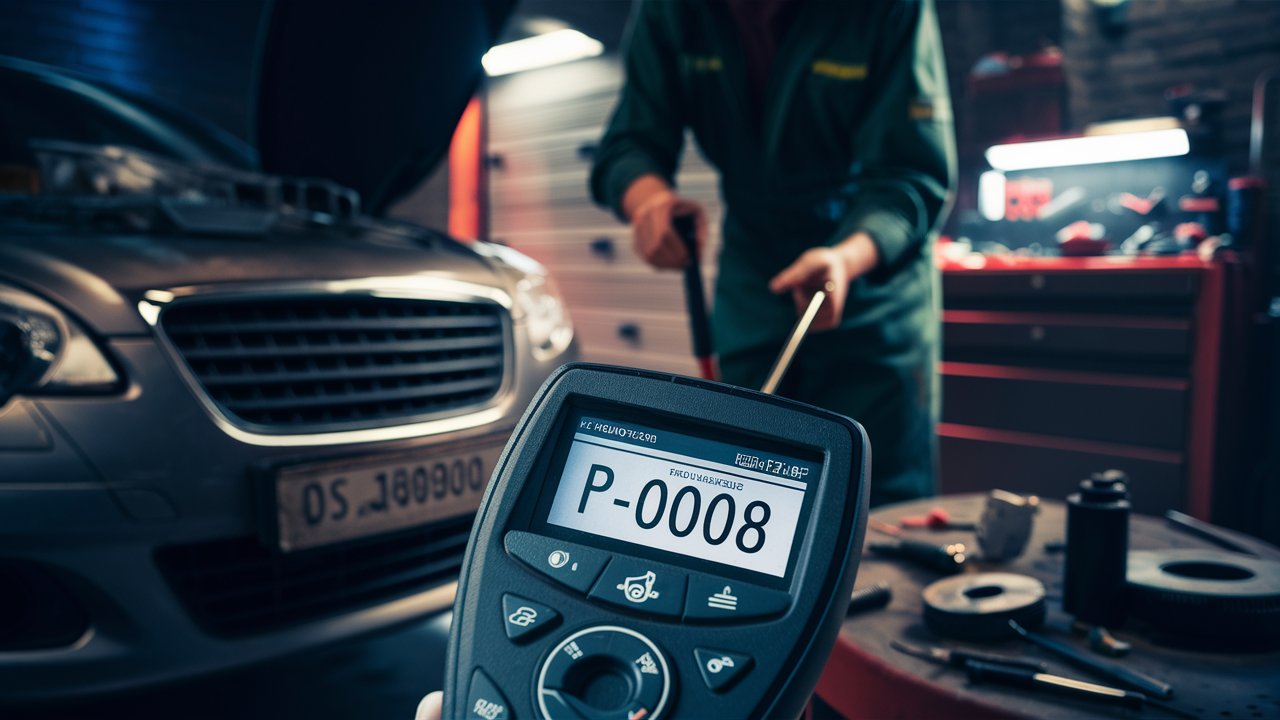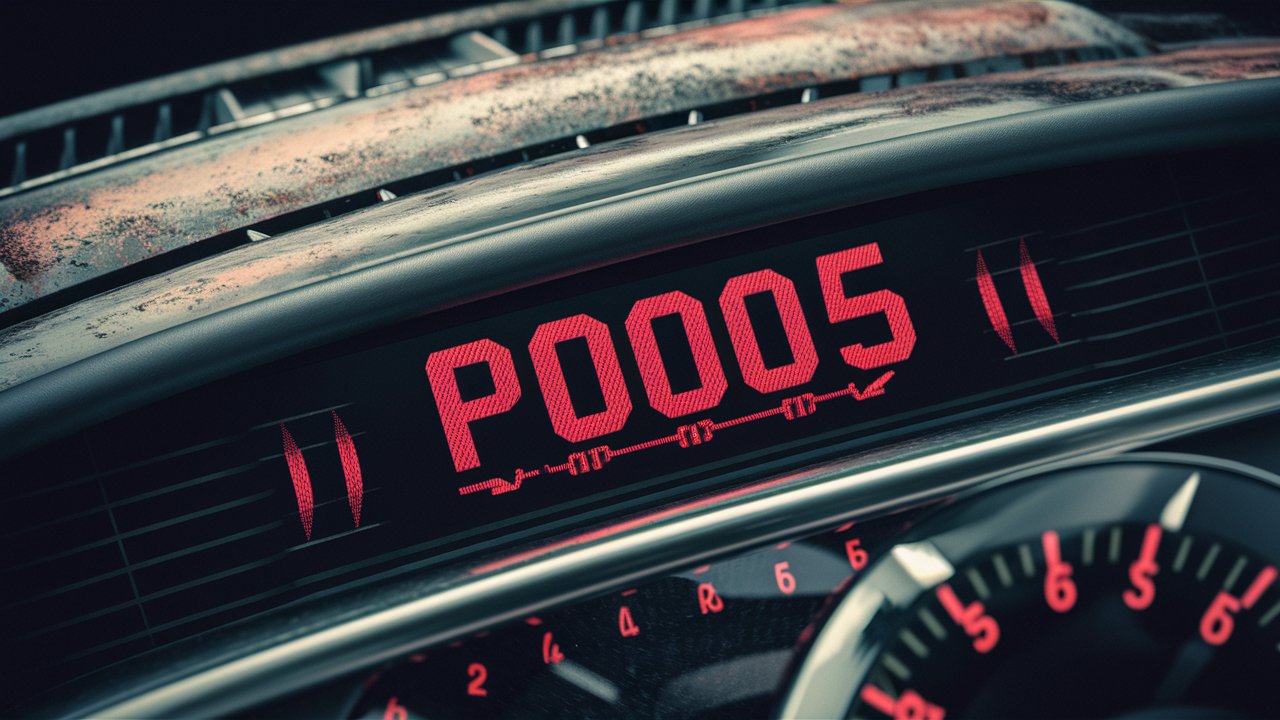P0100 Code Mass Air Flow (MAF) Sensor Fault
The Mass Air Flow (MAF) sensor is an essential component of a vehicle’s engine management system, playing a crucial role in ensuring the engine receives the correct amount of air for optimal combustion. The P0100 code indicates a malfunction with the MAF sensor, which can lead to various engine performance issues. Understanding the causes, symptoms, and solutions for this fault is vital for maintaining your vehicle’s health.
Understanding the P0100 Code

What is a MAF Sensor?
The MAF sensor measures the amount of air entering the engine, providing data to the engine control unit (ECU) to regulate the air-fuel ratio. This information is critical for the engine to run efficiently and smoothly.
How the MAF Sensor Works
The MAF sensor operates by sending an electrical signal to the ECU based on the airflow detected. This signal helps the ECU determine the precise amount of fuel to inject into the combustion chambers, optimizing performance and emissions.
Importance of the MAF Sensor
A properly functioning MAF sensor ensures that the engine receives the correct air-fuel mixture, which is crucial for achieving optimal fuel efficiency, performance, and emission standards. Any fault in this sensor can lead to significant issues.
Causes of P0100 Code MAF Sensor Fault
Common Causes
The P0100 code can be triggered by various factors, including a dirty or damaged MAF sensor, electrical issues, or problems with the air intake system. Identifying the exact cause is essential for effective repairs.
Environmental Factors
Environmental conditions such as extreme temperatures, humidity, and dust can affect the MAF sensor’s performance. Over time, these factors can lead to sensor degradation or failure.
Mechanical Issues
Mechanical problems, such as a clogged air filter, damaged intake manifold, or vacuum leaks, can also cause the P0100 code. Ensuring all related components are in good condition can prevent sensor faults.
Symptoms of a Faulty MAF Sensor
Engine Performance Problems
One of the primary symptoms of a faulty MAF sensor is poor engine performance. This can manifest as rough idling, stalling, or a lack of power during acceleration.
Fuel Efficiency Issues
A malfunctioning MAF sensor can cause the engine to run too rich or too lean, leading to decreased fuel efficiency. You may notice an increase in fuel consumption without any corresponding improvement in performance.
Starting Difficulties
Difficulties in starting the engine, especially in cold conditions, can also indicate a problem with the MAF sensor. The engine may crank longer than usual or fail to start altogether.
Diagnosing the P0100 Code
Diagnostic Tools
Diagnosing a P0100 code requires specialized tools, such as an OBD-II scanner, which can read and interpret fault codes. This scanner can also provide real-time data on the MAF sensor’s performance.
Step-by-Step Diagnostic Procedure
- Connect the OBD-II Scanner: Plug the scanner into the vehicle’s diagnostic port.
- Retrieve the Fault Codes: Read the codes and note the P0100 code.
- Inspect the MAF Sensor: Check for visible damage or dirt.
- Test the Sensor: Use a multimeter to check the sensor’s voltage and signal output.
- Check Related Components: Inspect the air filter, intake manifold, and electrical connections.
Understanding Diagnostic Results
Interpreting the diagnostic results accurately is crucial. A consistent or erratic signal from the MAF sensor can indicate whether the sensor is faulty or if another issue is causing the problem.
Repairing the MAF Sensor Fault
Cleaning the MAF Sensor
In many cases, the MAF sensor can be cleaned to restore its functionality. Use a specialized MAF sensor cleaner and follow the instructions carefully to avoid damaging the sensor.
Replacing the MAF Sensor
If cleaning does not resolve the issue, replacing the MAF sensor may be necessary. Ensure you use a high-quality replacement part to avoid recurring problems.
Resetting the ECU
After repairing or replacing the MAF sensor, it’s important to reset the ECU to clear the fault codes and allow the system to recalibrate.
Preventing MAF Sensor Issues
Regular Maintenance
Routine maintenance, such as replacing the air filter and inspecting the intake system, can prevent MAF sensor issues. Regularly servicing your vehicle ensures all components function optimally.
Using High-Quality Air Filters
Investing in high-quality air filters can reduce the amount of dirt and debris entering the MAF sensor, prolonging its lifespan and maintaining accurate readings.
Monitoring Engine Performance
Keep an eye on your vehicle’s performance and address any unusual symptoms promptly. Early detection and intervention can prevent minor issues from becoming major problems.
FAQs
What does the P0100 code mean?
The P0100 code indicates a malfunction in the Mass Air Flow (MAF) sensor circuit, affecting the sensor’s ability to measure airflow accurately.
Can I drive with a faulty MAF sensor?
While you can drive with a faulty MAF sensor, it is not advisable. A malfunctioning sensor can lead to poor engine performance and increased fuel consumption.
How much does it cost to fix a MAF sensor?
The cost to fix a MAF sensor can vary. Cleaning the sensor is inexpensive, but replacing it can range from $100 to $300, depending on the vehicle and sensor type.
How often should the MAF sensor be cleaned?
It’s recommended to clean the MAF sensor during regular maintenance, typically every 20,000 to 30,000 miles, or as specified by your vehicle’s manufacturer.
Are there alternatives to MAF sensor replacement?
Cleaning the sensor or addressing related issues, such as a clogged air filter, may resolve the problem. However, if the sensor is damaged, replacement is the only solution.
How does a faulty MAF sensor affect fuel economy?
A faulty MAF sensor can cause the engine to run inefficiently, leading to increased fuel consumption and higher emissions.
Conclusion
Summarizing Key Points
The P0100 Mass Air Flow (MAF) sensor fault is a common issue that can significantly impact your vehicle’s performance. Understanding the causes, symptoms, and solutions is crucial for effective diagnosis and repair.
The Importance of Addressing MAF Sensor Issues
Ignoring MAF sensor issues can lead to more severe engine problems and increased repair costs. Prompt attention and maintenance can prevent these issues and ensure your vehicle runs smoothly.
Final Thoughts
Maintaining a healthy MAF sensor is essential for optimal engine performance and fuel efficiency. Regular maintenance, timely diagnostics, and using high-quality components can help you avoid the complications associated with a P0100 fault code.
P0100 Code Mass Air Flow Sensor Error
P0100 Code Mass Air Flow Sensor Error causes, symptoms, and solutions explained. Learn how to diagno…
P0010 Fault Code: Diagnosis and Repair Guide
Understand the P0010 fault code, its symptoms, diagnosis, and detailed repair steps to resolve engin…
Understanding the P0008 Fault Code: Symptoms, Diagnosis, and Repair
Learn all about the P0008 fault code in vehicles. Discover its symptoms, causes, diagnosis steps, an…
P0007 Fault Code: Comprehensive Guide
Learn all about the P0007 fault code, its causes, symptoms, and effective fixes to keep your vehicle…
P0006 FAULT CODE
Discover everything about vehicle fault code P0006, including what it means, how to repair it, and a…
Vehicle Fault Code P0005: Comprehensive Guide to Diagnosis and Repair
Learn about vehicle fault code P0005, how to repair it, and steps to troubleshoot effectively.





